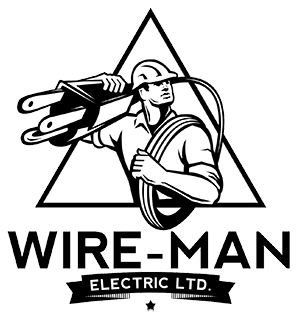With electric vehicle (EV) ownership on the rise, businesses are beginning to recognize the benefits of installing EV charging stations on their premises. These chargers not only cater to customers and employees with EVs but also provide businesses with a competitive edge, boost sustainability efforts, and open doors to potential financial incentives. Let’s explore why EV charger installation at your business could be a strategic decision and the steps to get started.
Why Your Business Should Consider EV Charging Stations
Attract and Retain Customers
By installing commercial EV chargers, you make your business more appealing to a growing demographic of EV drivers. Offering charging options allows customers to power up while they shop, dine, or use your services, which can increase foot traffic and customer dwell time. EV drivers are likely to choose businesses that provide charging services over competitors without them, giving you an edge in attracting and retaining these customers.
Employee Satisfaction and Convenience
Providing charging stations for employees who drive electric vehicles is a valuable perk that promotes convenience and job satisfaction. As EV ownership continues to grow, employees will appreciate having access to chargers, allowing them to recharge during the workday and reducing the need to find charging facilities off-site. An EV-friendly workplace can also improve employee retention, as it shows your commitment to supporting sustainable commuting options.
Strengthen Your Brand’s Sustainability Profile
Installing EV chargers aligns your business with the shift toward renewable energy and sustainable practices. Demonstrating a commitment to sustainability by supporting green transportation solutions can enhance your brand’s image, particularly among environmentally conscious consumers. Many people value businesses that are proactive about environmental issues, and EV chargers are a visible sign of your commitment to reducing carbon emissions.
Potential Financial Incentives for EV Charger Installation
In addition to customer and employee benefits, there are often financial incentives for businesses that install EV chargers. Many government programs, utility companies, and local organizations offer rebates, tax credits, and grants to offset the cost of installing EV charging stations.
- Federal and Provincial Rebates: In Canada, both federal and provincial programs offer financial support for EV charger installations. These rebates can significantly reduce installation costs, making it easier for businesses to adopt this eco-friendly upgrade.
- Tax Credits: Tax credits are another way businesses can recoup some of their initial investment. Depending on your location, you may qualify for tax credits that help cover equipment and installation expenses.
- Utility Incentives: Some utility companies offer incentives or discounted rates for businesses that install EV chargers, which can help further reduce operational costs.
By taking advantage of these programs, businesses can make EV charging stations a cost-effective addition.
EV Charger Installation Process and Considerations
Installing EV charging stations requires thoughtful planning and consideration to ensure they meet the needs of your business and customers. Here’s an overview of the process:
Assess Your Business Needs
Start by assessing the demand for EV charging at your location. Consider factors like customer demographics, the number of employees with EVs, and the nature of your business. For instance, retail stores, hotels, and restaurants may benefit from Level 2 chargers, which provide faster charging speeds, while offices with long employee shifts might be fine with slower chargers.
Choose the Right Charging Level
- Level 1 Chargers: These chargers use a standard 120-volt outlet and are typically used for home charging. They are the slowest charging option and may not be suitable for commercial settings.
- Level 2 Chargers: These chargers use a 240-volt outlet, offering faster charging speeds than Level 1. They’re the most popular choice for commercial locations, providing a full charge in a few hours.
- Level 3 Chargers (DC Fast Chargers): Also known as rapid chargers, Level 3 chargers can recharge an EV in under an hour. These chargers are more expensive but ideal for high-traffic areas like shopping centers and rest stops.
Evaluate Your Site and Electrical Capacity
Once you decide on the type of charger, have a professional electrician evaluate your property’s electrical capacity. Upgrading electrical systems may be necessary to accommodate the increased load. Your electrician will also assess the best locations for installation, ensuring accessibility and compliance with local regulations.
Work with an Experienced Installer
Hiring a professional installer with experience in commercial EV chargers is essential for a smooth installation process. They’ll ensure that chargers are installed according to code, integrate with your electrical system, and meet any necessary safety standards.
Consider Maintenance and Operational Costs
Once the chargers are installed, plan for regular maintenance to keep them in good working order. While EV chargers are generally low-maintenance, periodic checks will ensure consistent performance. You’ll also need to decide whether to offer charging as a free service or at a cost, which could offset some operational expenses.
Drive Success with EV Charger Installation
Installing EV charging stations at your business offers numerous benefits, from attracting new customers and supporting employees to enhancing your brand’s sustainability image and increasing property value. With the potential for financial incentives, installing commercial EV chargers can be a cost-effective investment in the future. By carefully assessing your business needs, choosing the right chargers, and working with experienced installers, you can make the transition to EV charging smooth and successful.
Whether you’re looking to attract more customers or build a greener business, Wireman Electric can help you every step of the way. Contact us today to discuss your commercial EV charging options and how we can support you in creating a sustainable, energy-efficient future.
